China's gamble for global supremacy in era of Trump
- Published
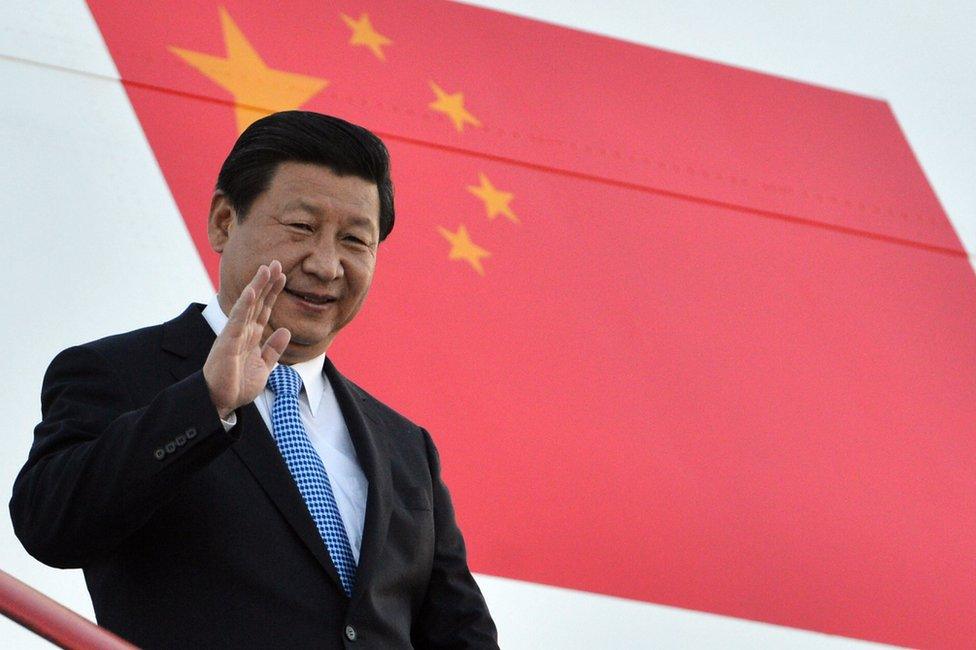
Is Xi Jinping's China destined to be the world's reigning superpower?
At his inauguration last week President Trump reframed the American mission from leadership of a global rules-based system in the interests of all, to 'America first'. Meanwhile the leader of Communist China rebranded his prickly protectionist power as the defender of globalisation and shared values. So after week one in this upside down new world, how stands China's bid for global leadership?
'Trump confirms socialism is the way'
A week is just a week, but when it comes to strategic focus, China is on course. It's easier to look laser sharp when the competition is in disarray. Here the internal difficulties of the US and the European Union are helpful to China.
As Chinese Foreign Ministry official Zhang Jun put it in a discussion with foreign journalists: "If people want to say China has taken a position of leadership, it's not because China suddenly thrust itself forward as a leader. It's because the original front-runners suddenly fell back and pushed China to the front."
In the past week alone, a bitter row over the size of the crowd at the Trump inauguration, followed by street protests the next day, underlined the divisions of the world's superpower even at the very moment which was supposed to heal.
For China's citizens, brought up to see street protests as dangerous, this was another symptom of dysfunction in a political system they've been taught to distrust.
And next, an American president echoed Beijing's message that the mainstream American media can't be trusted.
So it's been a week to put a spring in the step of China's communists, to shake off the inferiority complex of an autocratic political system, and even to advance the claim that China's system is superior.
Among business leaders at the World Economic Forum in Davos, President Xi talked the language of global togetherness, but back home his Communist Party's flagship newspaper, the People's Daily, lost no time in declaring the bankruptcy of Western politics.
"The emergence of capitalism's social crisis is the most updated evidence to show the superiority of socialism and Marxism," it said.
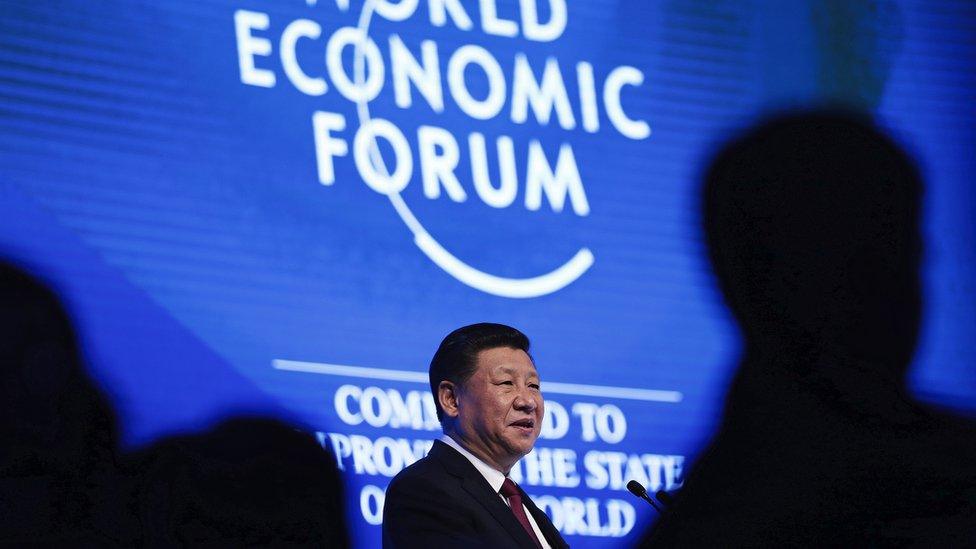
Mr Xi made anti-protectionism comments aimed at the US when he spoke at the World Economic Forum in Davos
This ideological inoculation is invaluable for Xi Jinping ahead of the vital Communist Party Congress which will clarify China's leadership line-up for the next five years.
What's more, greater political confidence at home allows him to focus out.
The inauguration of a billionaire celebrity promising to make America great again through building walls confirms the view of some in Beijing that the United States is in terminal decline, and that this is a moment of opportunity for China.
President Xi's favourite slogans are the "China Dream" and the "great rejuvenation of the Chinese people". But it's all happening faster than his predecessors could have imagined.
It's less than two decades since China fully entered a US-led world of global capitalism.
When China joined the World Trade Organization, it complained bitterly about living under rules made by the US and its friends, while fully expecting to live under those rules for decades to come.
But November's American presidential election finished what the 2008 financial crisis had begun: a shift in worldview. And now we are one week into the new leadership mission set out by President Xi at Davos.
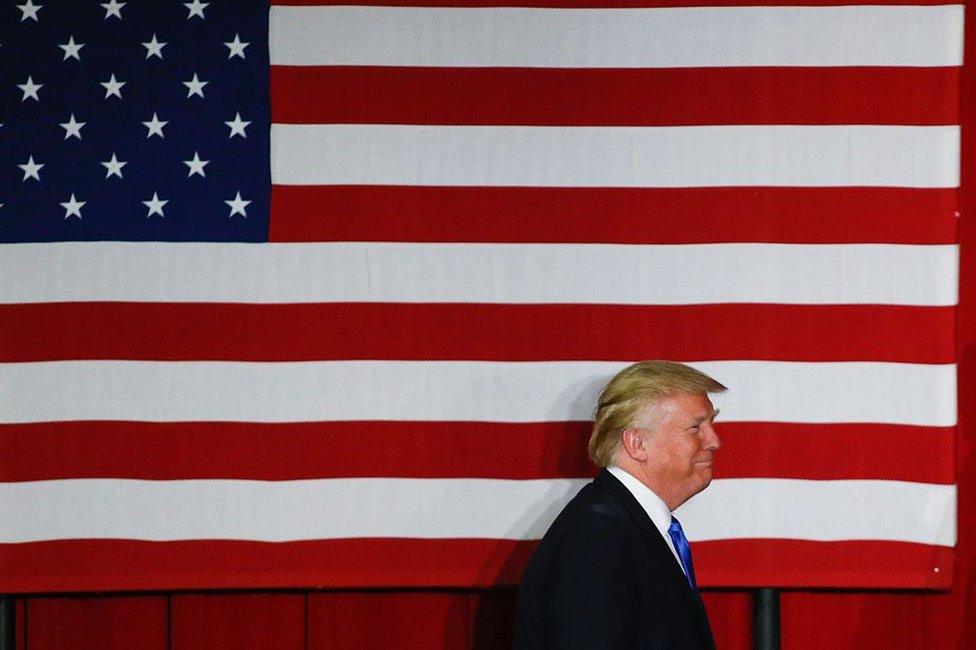
Some in China believe Mr Trump's America is in terminal decline
In comparison, Xi Jinping looks balanced
A word about character.
In China there are some who compare Mr Trump's character and leadership style with China's Chairman Mao. They point to the former's relentless tweeting as a new version of the latter's daily deluge of quotations.
They note other similarities: the unpredictability, distrust of media, and overwhelming self-confidence.
Some admire and some despise, but Donald Trump, they say, is a great disrupter in the Maoist mould.
All of which is a discussion which takes some of the heat off President Xi at home. Until recently critics accused him of Maoist tendencies after his relentless concentration of titles and power and his frenetic media personality cult.
But as China's citizens look out on a world of strongmen this week, their own president may seem comparatively sober, predictable and experienced: not too much the Caesar, nor too little, for a global leader in our age.
China becomes the voice of globalisation
Meanwhile Mr Xi's outward facing message, that China wants a world of fair trade and globalisation, got a boost this week from several quarters, including the Asian Infrastructure Investment Bank (AIIB).
The Chinese-led development bank said it is set for expansion. It currently has nearly 60 members and now says another 25 are likely to join this year.
Two years ago when the AIIB was launched, it became a symbol of the pulling power of China's money and nimble diplomacy when US allies lined up to join despite strong US opposition.
This week, AIIB president Jin Liqun told journalists, it was China's turn to contribute to the world: "China needs to do something that can help it be recognised as a responsible leader."
But in the long view, if this week is to be remembered as a tipping point towards Chinese power, it will not be because of anything announced in Beijing but because of what happens in Washington.
One of President Trump's first acts in office was to sign an executive order withdrawing the US from the Trans-Pacific Partnership (TPP) trade pact which the Obama administration had insisted would cement US leadership in Asia.
"Protection will lead to greater strength", said Mr Trump. But in an open letter, outgoing US ambassadors in the region disagreed.
"Walking away from TPP may be seen by future generations as the moment America chose to cede leadership to others in this part of the world and accept a diminished role."
Certainly in response to the Trump announcement, US ally and TPP signatory Australia immediately said it hoped to recast the trade agreement without the US, and said China might be invited to join.
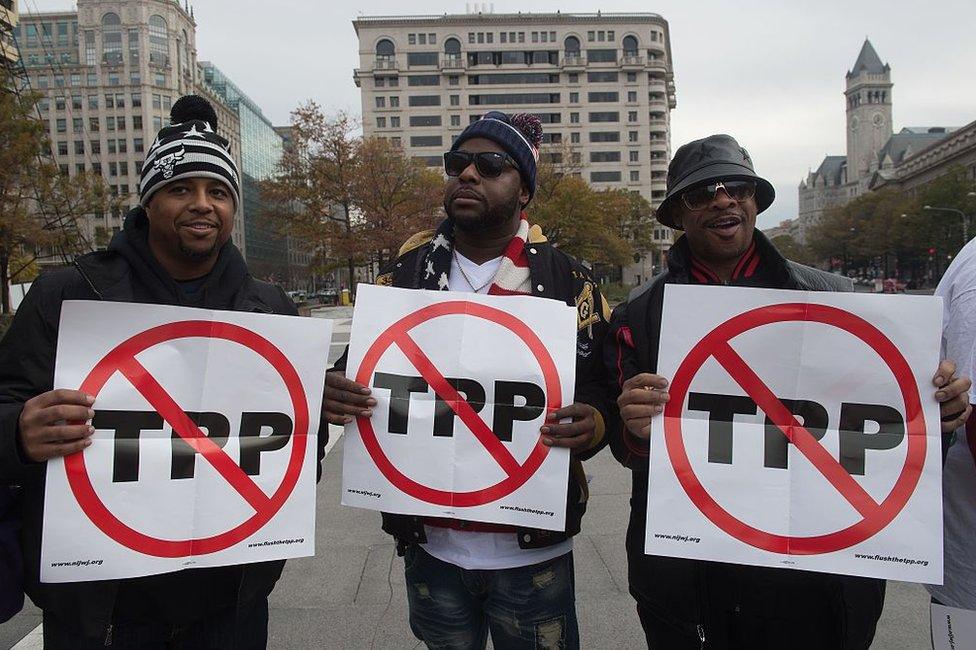
The TPP has been opposed by many in the US
China remains unchallenged in Asia...
Asia is the key testing ground where the US stands in the way of China's ambitions.
Since the end of World War Two, Washington has insisted that the US is in Asia for the good of all and invested decades in diplomacy and defence to maintain the liberal international order.
On the campaign trail, Mr Trump expressed impatience with that investment. And having withdrawn from the TPP, the Trump administration will have to find a new way to nurture key allies and partners in the region and to reassure them that 'America first' does not mean everyone else last.
But at the same moment, China's diplomats and bankers are stepping up their efforts and their focus does not waver.
Last year, Beijing turned an international legal defeat over the South China Sea into a diplomatic triumph by charming and disarming the Philippine President Rodrigo Duterte.
In the Trump era, it has other US allies in its sights. Only this week, Thailand confirmed funding for the purchase of a Chinese submarine.
... and not afraid to defend itself
But on security, the week also saw a cloud on China's leadership horizon.
The new White House spokesman Sean Spicer seemed to echo warnings to China from incoming Secretary of State Rex Tillerson when he sketched out a position on the South China Sea.
"We're going to make sure that we defend international territories from being taken over by one country," said Mr Spicer.
It's not clear exactly what he meant or exactly what Mr Tillerson meant, but a Chinese foreign ministry spokesman immediately restated China's claim to sovereignty in the region, and insisted that Beijing would be resolute in defending its own rights and interests.
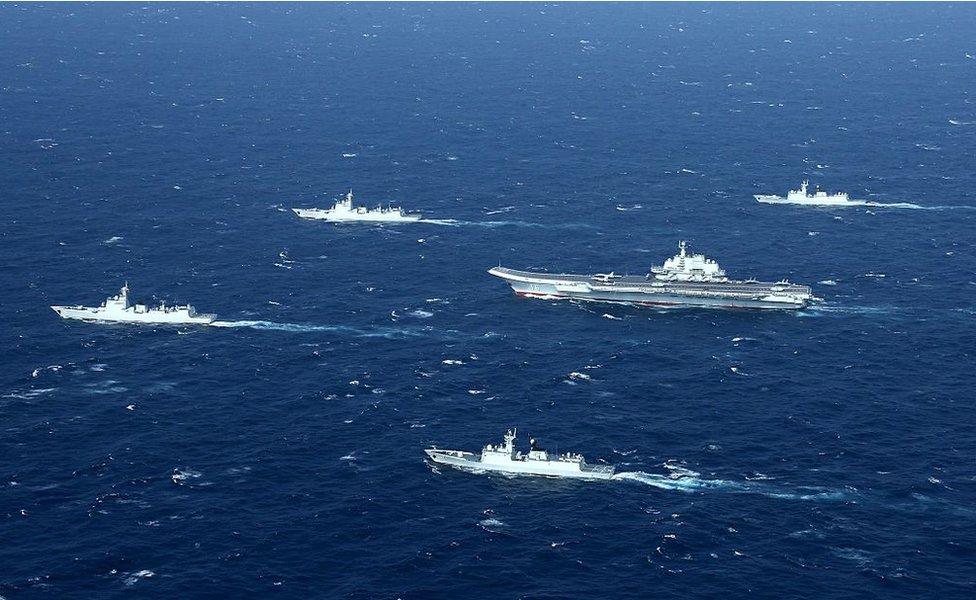
The Chinese navy has been carrying out military drills in the South China Sea this month
If the Trump administration is to push back against China in the South China Sea it will need support from US allies who ask themselves whether Mr Trump has the strategic focus necessary for such a risky undertaking.
China will naturally encourage those doubts given its preference for making domination of the South China Sea a fait accompli with as little fuss as possible.
But there are many players, many unpredictable variables and many wrong moves in this game.
One week into the new world order, China's leaders may feel some things are playing into their hand. But it will be many months, perhaps years, before they can judge whether China's global gamble is a win against Trump's America.
- Published16 January 2017
- Published17 January 2017
- Published16 March 2016
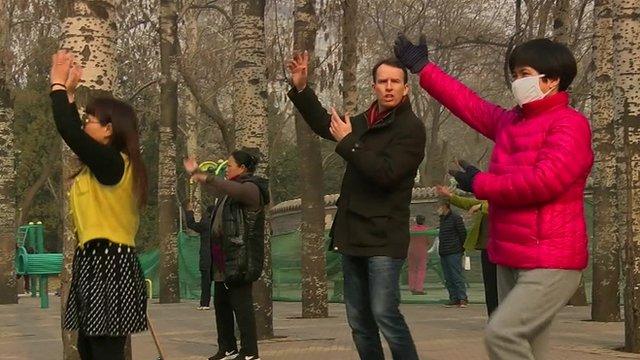
- Published18 October 2015
- Published23 January 2017
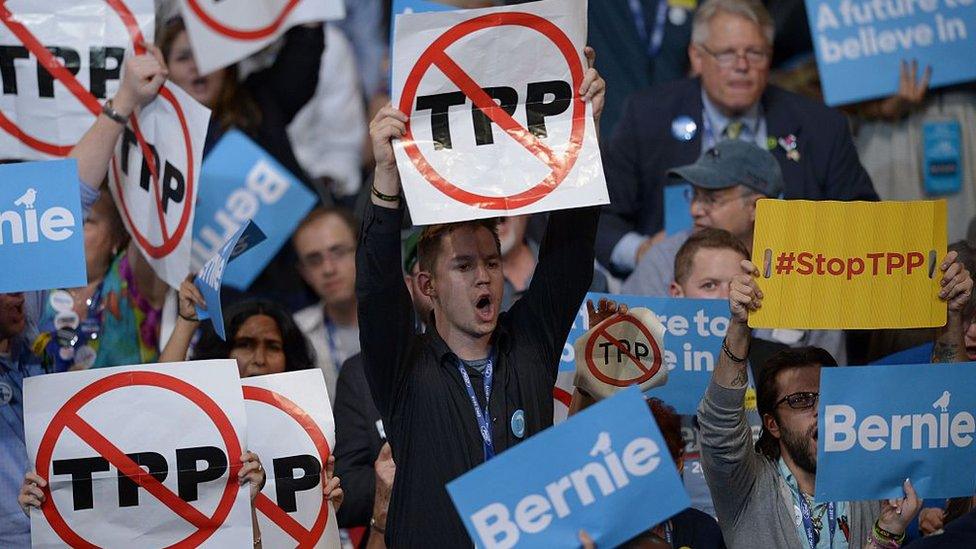
- Published24 January 2017